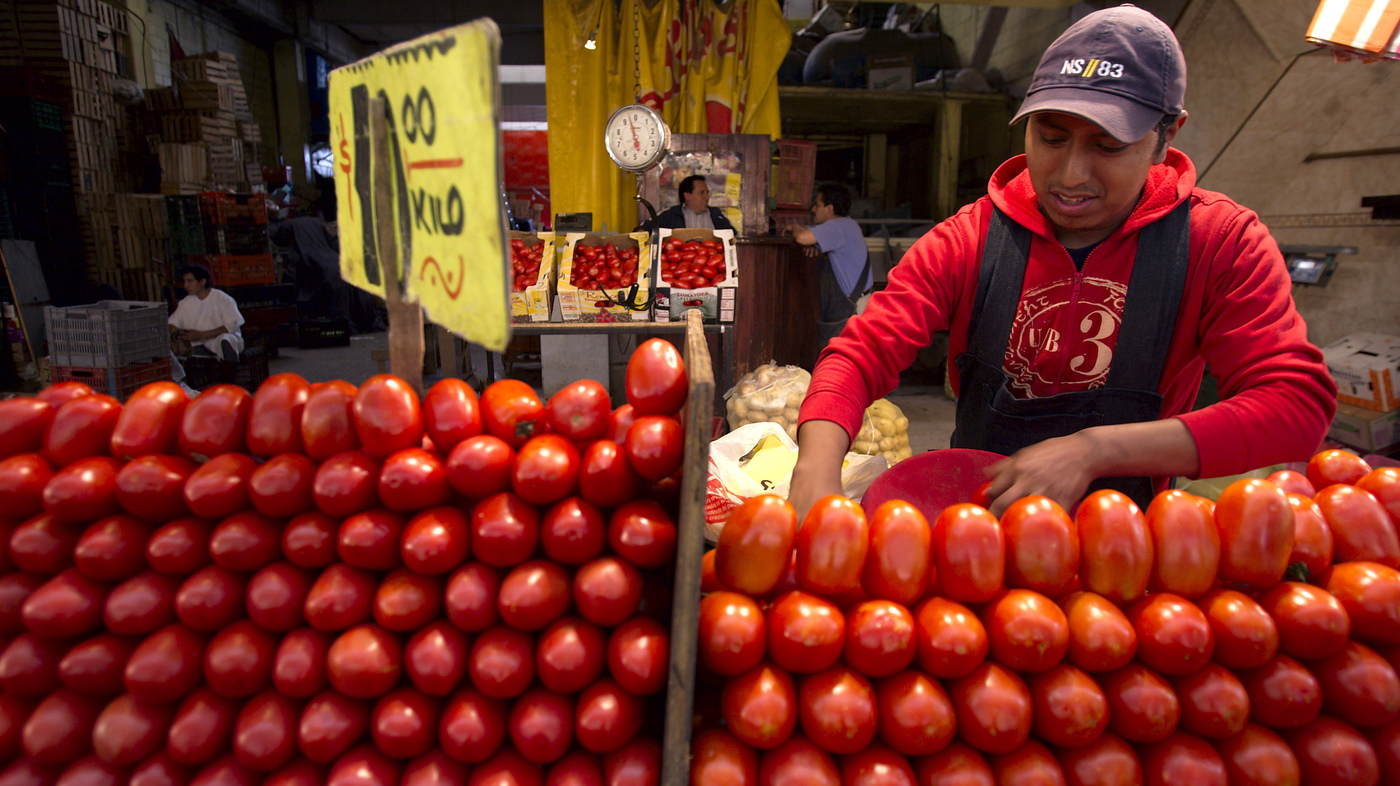The Import Administration of the Commerce Department announced on September 27 a preliminary decision to terminate its suspended anti-dumping investigation on Mexican tomatoes as requested by U.S. tomato growers. The Commerce Department also said if they make a final decision to terminate the suspended investigation it would also terminate a related suspension agreement that has governed U.S. tomato imports from Mexico since 1996.
The implementation of NAFTA on January 1, 1994 eliminated a U.S. import tariff on Mexican tomatoes. Almost immediately U.S. tomato producers for the winter fresh market accused Mexican producers of dumping tomatoes at low prices and driving domestic producers out of business. November 1, 1996 agreement suspended an investigation by the Commerce Department that began as a result of a dumping complaint filed by tomato growers in the U.S. against Mexican producers. EN 2008 agreement review established a revised floor price for Mexican tomatoes at $0.172 per pound in the summer and $0.216 per pound in the winter.
US. growers argue they cannot compete at those prices and wanted the deal terminated, not renegotiated. They believe it no longer is effective in protecting them from unfair competition from Mexico. Termination would allow them to file a new anti-dumping petition for new tariffs. The Commerce Department instead launched a ‘changed circumstances’ review to judge the level of support in the U.S. tomato industry for the suspension agreement. The public has a 40 day comment period starting on October 2 when the notice appeared in the Federal Register. A final decision on the preliminary decision must be made by May 13, 2013.
According to analysis by the Economic Research Service of USDA, tomato prices in the U.S. and Mexico this past winter were depressed at $0.30 per pound because of good crops in both countries. Winter freezes in parts of the two countries in the previous two years had resulted in winter tomato prices of $0.80 til $1.00 per pund. The expansion in greenhouses and other protected facilities in Mexico also reduces weather uncertainties in production.
Mexican tomato growers have made a proposal to the Commerce Department to keep the suspension agreement in place. They would accept a higher floor price for their tomatoes, substantially expand the number of growers covered by the agreement and strengthen enforcement by involving the Mexican government in addition to the U.S. regering. The two parties to the suspension agreement are the Mexican tomato growers and the Commerce Department. US. tomato growers are not a party to the suspension agreement, but the Commerce Department will brief the U.S. growers as interested stakeholders. Det New York Times reported that Reggie Brown, Executive Vice President of the Florida Tomato Exchange, said he could not envision anything that the Mexicans could offer that would make the agreement palatable to the American growers.
The Mexican government indicated it will retaliate to the fullest extent allowed. They consider the preliminary decision to end the suspension of the anti-dumping case to be an attempt by the Obama Administration to gain support of farmers in a key swing state in the Presidential election. Talk of Mexican retaliation brought up comparisons to the NAFTA trucking situation when Mexico placed tariffs on $2.4 billion of U.S. agricultural exports to force the Obama Administration to alter its position. The value of Mexican tomato exports to the U.S. is $1.9 milliarder om året.
Congress has already entered the dispute. Fifteen members of the House of Representatives from Florida, 10 Republicans and 5 Democrats, wrote to Acting Commerce Secretary Rebecca Blank indicating disappointment on the ‘changed circumstances’ review rather than terminating the suspension agreement giving producers the option to file a new anti-dumping investigation. Senator Ben Nelson (FL-D) voiced similar support for quick resolution of the ‘changed circumstances’ review.
That politics would enter a trade dispute in a Presidential election year is not a surprise. Both political parties slice the electorate into political interest subgroups and appeal to their specific needs. That tomato growers, input suppliers and farm workers, would be one of those subgroups seems logical. Representatives from both parties signing a letter of support is a normal response to a local political constituency. A Senator running for reelection is expected to chime in.
The role of the President should be different. He is called upon to represent the broader interests of all consumers and exporters of other goods and services. The goal of the Florida tomato growers is to protect their business interests. Achieving that requires taxing the competition and that requires calculations to show that Mexican tomatoes are not priced high enough. En US. President should not be part of that to the disadvantage of all U.S. consumers and other exporters.
Næsten 17 years after NAFTA was implemented and five years after the last transition periods has ended, USA. and Mexico need a better way to settle these disputes than filing anti-dumping cases. Mexican chicken meat and pork producers continue to bring cases against U.S. producers just like the U.S. tomato producers. Having a competitive advantage should not result in a trade dispute case. President Obama and Mitt Romney should commit to not using anti-dumping cases as should President-elect Nieto of Mexico.
An investment climate should be created where decisions can be made with a long-term view knowing that producing a quality product at a competitive price will be rewarded. Mexican producers have invested in new technology and claim their vine-ripened tomatoes are superior products. Their market share in the U.S. winter fresh market has increased from about one-third to one-half over the last 16 flere år.
The three NAFTA countries will never reach their full potential of investment opportunities for producers and savings from lower prices for consumers until political influence in importing and exporting is further reduced. Politicians will continue to intervene as long as political rewards are available.
Ross Korves er en økonomisk politik Analytiker med Truth About Handel og Teknologi

